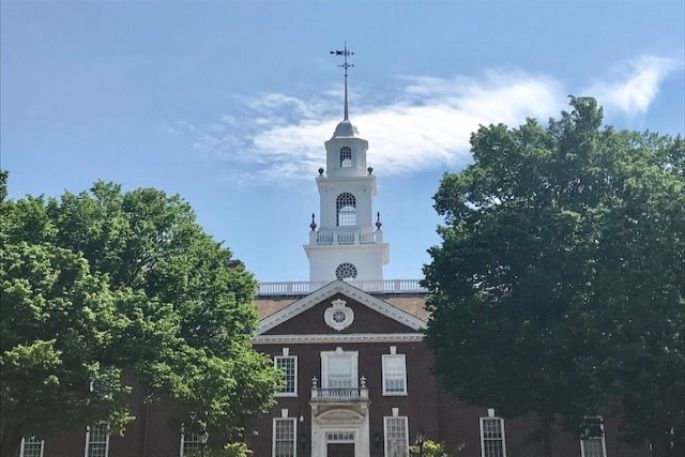Delaware State Rep. wants action on bills to hold elected officials, candidates accountable

Delaware State Representative Ruth Briggs-King is advocating for bills to hold elected officials and candidates more accountable by preventing the “double-dipping” of taxpayer-funded jobs and requiring candidates disclose unpaid state or federal personal income taxes.
The first measure, currently pending action in the House Administration Committee as House Bill 137, would require that all candidates running in the general election disclose if they have unpaid state or federal personal income taxes.
This is the fourth consecutive General Assembly where a version of this bill has been introduced.
The second bill seeks to help prevent elected officials from “double-dipping” salary from two taxpayer-funded jobs.
House Bill 126 (also in the House Administration Committee) would require elected officials or paid state, county, or local appointees – who are also employed by a government agency or school – to disclose employment to the Public Integrity Commission (PIC).
Rep. Briggs-King said such disclosure would assist the commission and the State Auditor to evaluate if the official was receiving dual compensation for overlapping hours of work.
“These are bills that enhance the ability for us to be open with the voters and the other people in Delaware, so they can see we’re living some of the laws we establish,” Rep. Briggs-King explained.
Under present law, the Public Integrity Commission has no authority to have the State Auditor review the salary records of elected officials that may be getting paid simultaneously for two taxpayer-funded jobs.
Other versions of this bill have been introduced and killed in each of the last two General Assembly sessions.
Democrats have held a majority in the Delaware House of Representatives since 2008. Presently, they enjoy a 26 to 15 majority over Republicans, controlling every committee and deciding which bills are voted on by the full chamber. In all their previous incarnations, neither of the disclosure bills has been debated on the House floor.
Rep. Briggs-King says she believes her proposals should become laws, noting that they would improve transparency and help build public trust, without any negative consequences.


